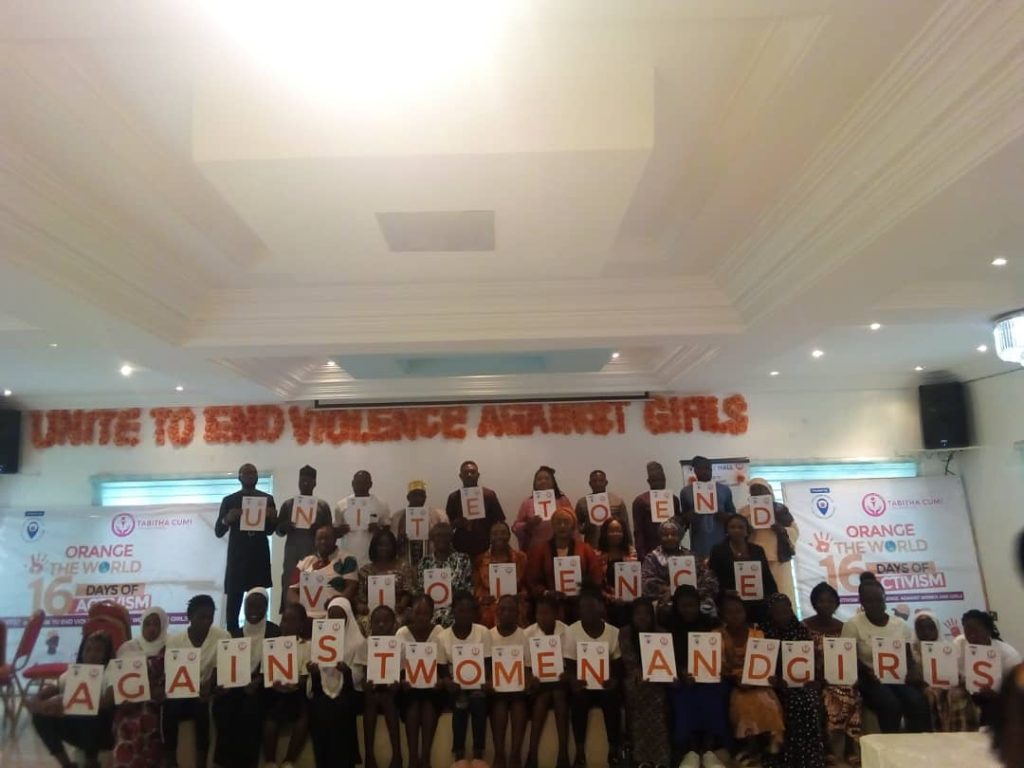By Justina Auta
The International Federation of Women Lawyers (FIDA) and Talitha Cumi Foundation (TCF), an NGO, have canvassed for advanced training on evidence gathering on Gender-Based Violence (SGBV) to strengthen prosecution of such cases in court.
They made the call in Abuja while commemorating the 16 days of activism to end GBV, with a theme: “Unite! Activism to end Violence against Women and Girls”.
Both groups said that such enlightenment, especially for women, would aide diligent prosecution of GBV cases.
The event was organised by TCF, under its “Flashlight Actions on Girls Safety (FLAGS)” project funded by UN Trust Fund to encourage stakeholders make their commitments and pledges to end all forms of GBV.
Ms Chibuzor Nwosu, Chairperson FIDA Abuja branch, stressed the need for more enlightenment to enable women aware of the importance of preserving evidence to ensure perpetrators of GBV are prosecuted.
Nwosu said phones and other ICT gadgets should also be used to document and preserve evidences of violence, which would be used in prosecuting the matter, even when physical evidence were not visible.
She also advised against washing away any evidence of sexual violence and taking the survivors to the hospital first for evidence gathering before reporting to the police.
“For Sexual Based Violence, like rape, it will be very important to know that the survivor needs to go to the hospital immediately that is very important as evidence from the hospital will be the cardinal evidence to prosecute the matter.
“But here most of our young girls, women out of ignorance and psychological trauma they first of all seek ways to hide or cover that by taking shower and not going to hospital before going to the police.
“These are the things that we try to enlighten our women and girls about, and make sure they take these important steps,” she said.
According to her, the FCT judiciary recently signed the new Judiciary Practice direction to tackle and accelerate prosecution of SGBV.
Also, Mrs Tayo Erinle, TCF’s Executive Director, said the organisation has trained facilitators at the community level on how to prevent, respond and refer GBV cases.
“We work to prevent, refer and respond. The important thing about referral is that when someone speaks out, what is done at that particular time is critical.
“The capacities of our facilitators at the communities have been built in this regard to know exactly what to do when the survivor comes to the primary health care center.
“They know exactly what to do when a case is reported to them because the things that are done at that critical moment will impact what will happen in future.
“The actions that are taken at that time will determine if prosecution can be pursued, and if further actions can be taken,” she said.
“She added that the foundation had done a lot of sensitisation in that regard.
“Even in the communities, we educate mothers that when a girl comes to say that she has been violated, don’t start cleaning her up, take her to the primary health care centre because you will wash away the evidence,” she said.
She said the 2022 theme for the campaign was apt, as it highlighting the need for collaborative efforts to end the menace in the society.
Chief of Idu Community, Mohammed Bawa reiterated the commitment of traditional leaders in ending GBV in communities.
According to, Mr Zephaniah Boyi, Youths Chairman, New Nyaya said, love should come from the family so that they will be free and comfortable enough to confide, when they are faced with challenges.
Boyi said that his community held weekly meetings with members and other stakeholders to sensitise people on the effects of GBV and the appropriate channel to seek help.
“If someone man-handle women, we will not take it lightly with that person and we will involve the police to deal appropriately with the issue,” he said.
Other highlights were panel discussions on realities and experiences of adolescent girls in the community reporting GBV, community accountability in addressing GBV and signing of pledge to unite against GBV.


